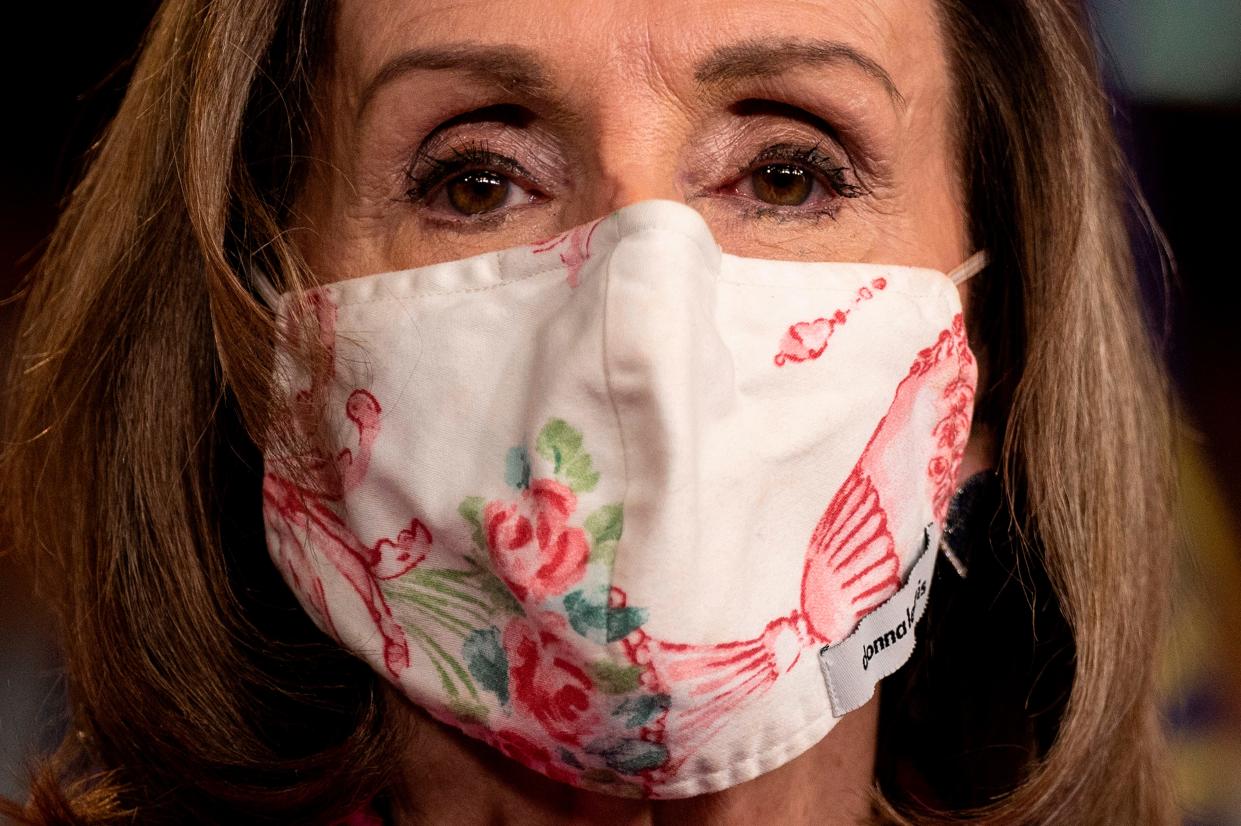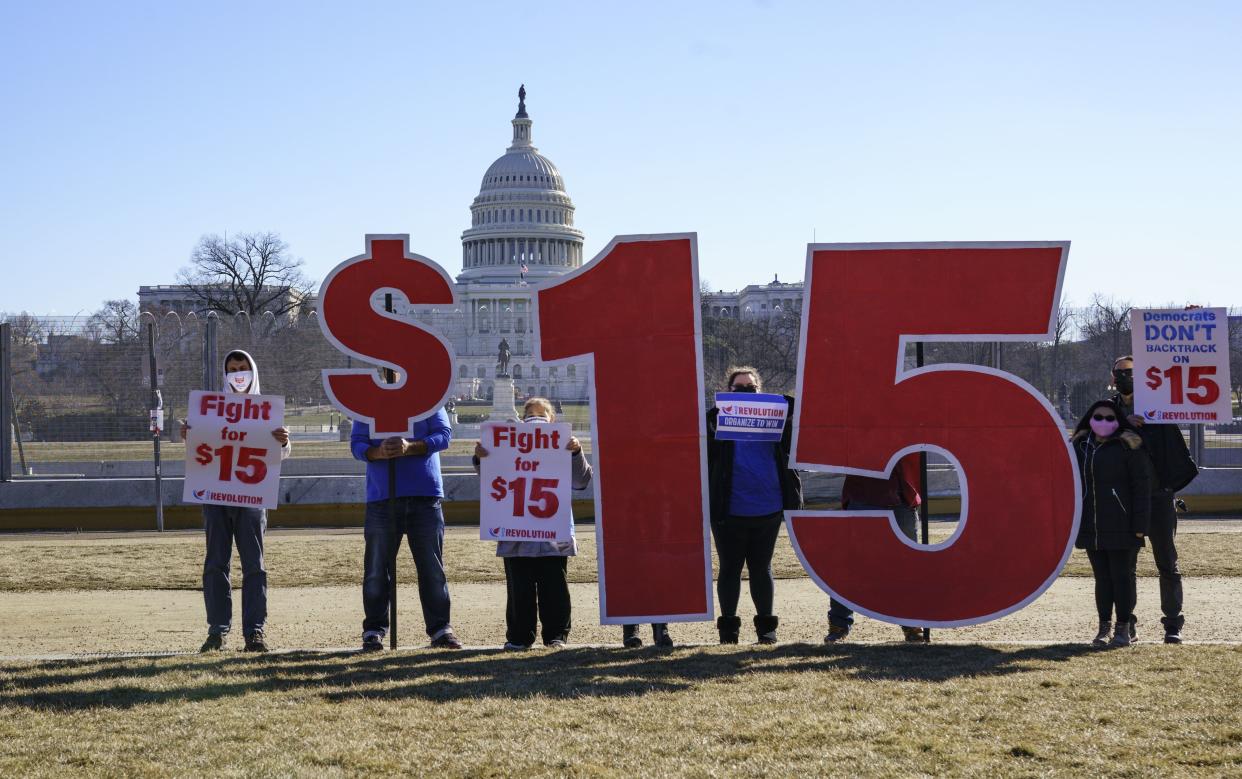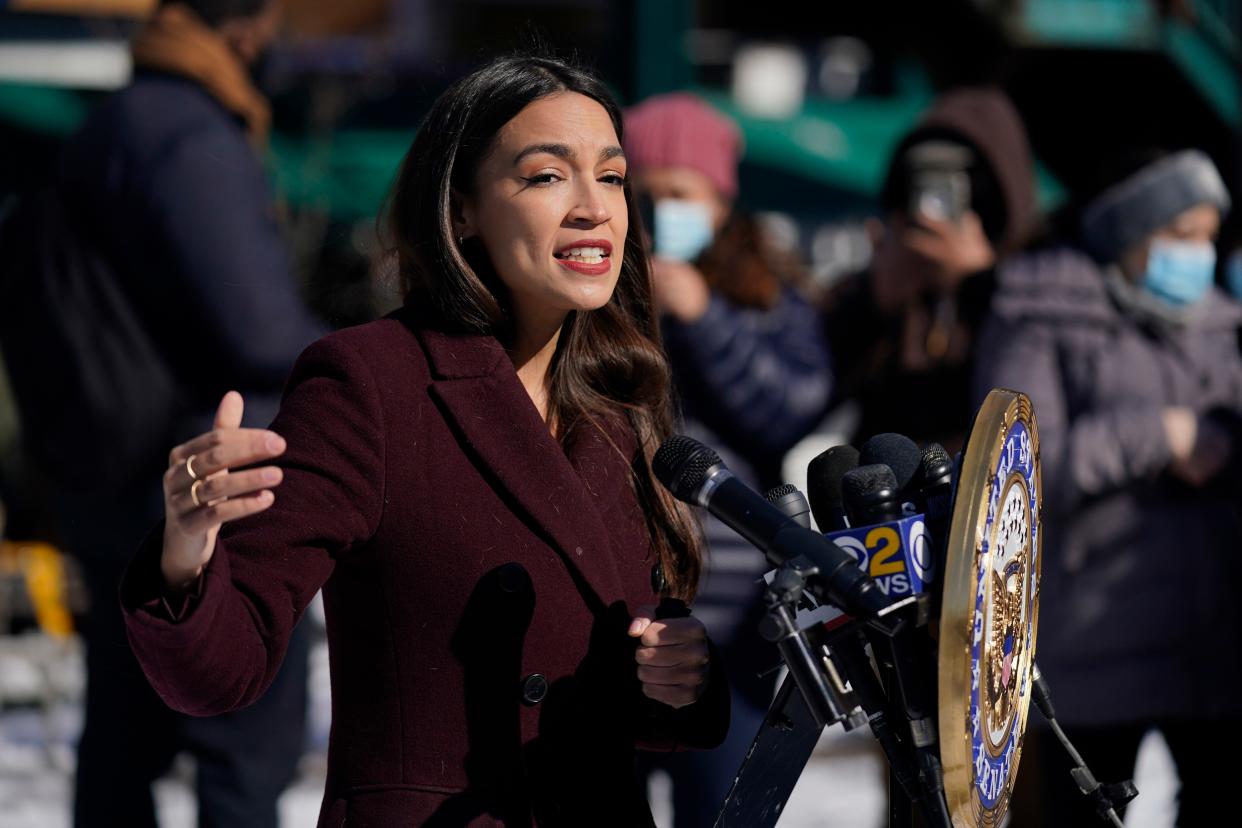House expected to pass Biden’s COVID relief bill despite minimum wage setback
The House was slated to pass President Biden’s $1.9 trillion coronavirus relief package late Friday night, even as a cloud of uncertainty remained over a key provision in the colossal bill that would boost the federal minimum wage.
The Biden legislation — which bankrolls $1,400 stimulus checks to most Americans, beefed-up unemployment benefits, billions of dollars for coronavirus vaccination efforts and budgetary relief for struggling state governments, among a range of other aid — was headed to the House floor for a final dead-of-night vote after lawmakers worked late into the evening to get it through procedural hoops.
Democrats, who control the House, were expected to approve the bill in a virtual party-line vote, with Republicans unanimously opposed to spending more money on helping pandemic-ravaged workers, businesses and states.
“The sooner we pass the bill and it is signed, the sooner we can make the progress that this legislation is all about: saving the lives and the livelihoods of the American people,” House Speaker Nancy Pelosi (D-Calif.) told reporters.

After House passage, the bill would head to the Senate, where Democrats are looking to approve it for a final signature from Biden before March 14, when federal unemployment aid enhancements and other pandemic relief programs are set to expire.
However, a complicated process will ensue once the bill hits the Senate because of an 11th-hour curveball thrown by Elizabeth MacDonough, the chamber’s nonpartisan parliamentarian.
MacDonough ruled late Thursday that a provision in the bill to bump the federal minimum wage from $7.25 to $15-per-hour must be taken out because she found it violated a budgetary process known as reconciliation that Democrats adopted in order to pass the legislation without Republican support.

House Democrats kept the wage raise provision in the version of the bill they were expected to pass Friday night, but the Senate will by all indications have to remove it.
Though Vice President Kamala Harris can overrule parliamentary decisions, White House officials said she will not do so out of “respect” for Senate procedure, all but certainly meaning MacDonough’s ruling will stand.
Even if Harris were to act, Sens. Joe Manchin of West Virginia and Kyrsten Sinema of Arizona, a couple of moderate Democrats, have said they do not support overriding the parliamentarian, meaning they may not vote in favor of the stimulus bill if the minimum wage hike somehow ended up in there.
Meantime, Senate Democrats likely can’t afford to lose any support from their own members, since the chamber’s 50 Republicans are, like their House counterparts, overwhelmingly opposed to appropriating more relief.
Though she said Biden’s “disappointed” by MacDonough’s finding, White House spokeswoman Jen Psaki suggested Congress should revisit the minimum wage piece in future legislation and quickly pass the other portions of the stimulus package, like direct payments, small business aid and relief for the millions who remain unemployed because of the deadly pandemic.
Progressive Democrats, who have pushed for a minimum wage boost for over a decade, were disappointed Harris is opting against overruling MacDonough.
“I know that going back to my family’s community in the Bronx and in Queens, we can’t tell them that this didn’t get done because of an unelected parliamentarian,” Rep. Alexandria Ocasio-Cortez (D-N.Y.) told reporters on Capitol Hill.
“I think all options should be on the table,” Ocasio-Cortez added when asked if she believes MacDonough should be replaced with someone who’s willing to give the minimum wage boost the green light.

If all else fails on the minimum wage front, Senate Majority Leader Chuck Schumer (D-N.Y.) has a backup plan, according to a senior aide.
Influenced by Sen. Bernie Sanders (I-Vt.), Schumer is mulling the idea of replacing the stimulus bill’s wage hike provision with language to “penalize” large corporations that don’t pay their workers at least $15-per-hour, the aide said.
Sanders’ proposal, floated late Thursday after MacDonough’s ruling, is to slap higher taxes on corporations that don’t hit the $15 benchmark as a way of pressuring them into boosting pay on their own. That approach would likely pass parliamentarian muster, the aide said.

If a minimum wage boost isn’t appended to the stimulus, Democrats would have to pass it as a stand-alone bill or attach it to some other type of legislation in the future that would likely require the support of 10 Republicans to pass because reconciliation will no longer apply. Few — if any — Republicans favor such a wage increase.
Pelosi declined to offer her thoughts on the Schumer-Sanders proposal, but insisted Democrats will find a way to raise the minimum wage.
“If it doesn’t prevail because of Senate rules, we will persist,” Pelosi said. “We will not stop until we very soon pass the $15 minimum wage.”
